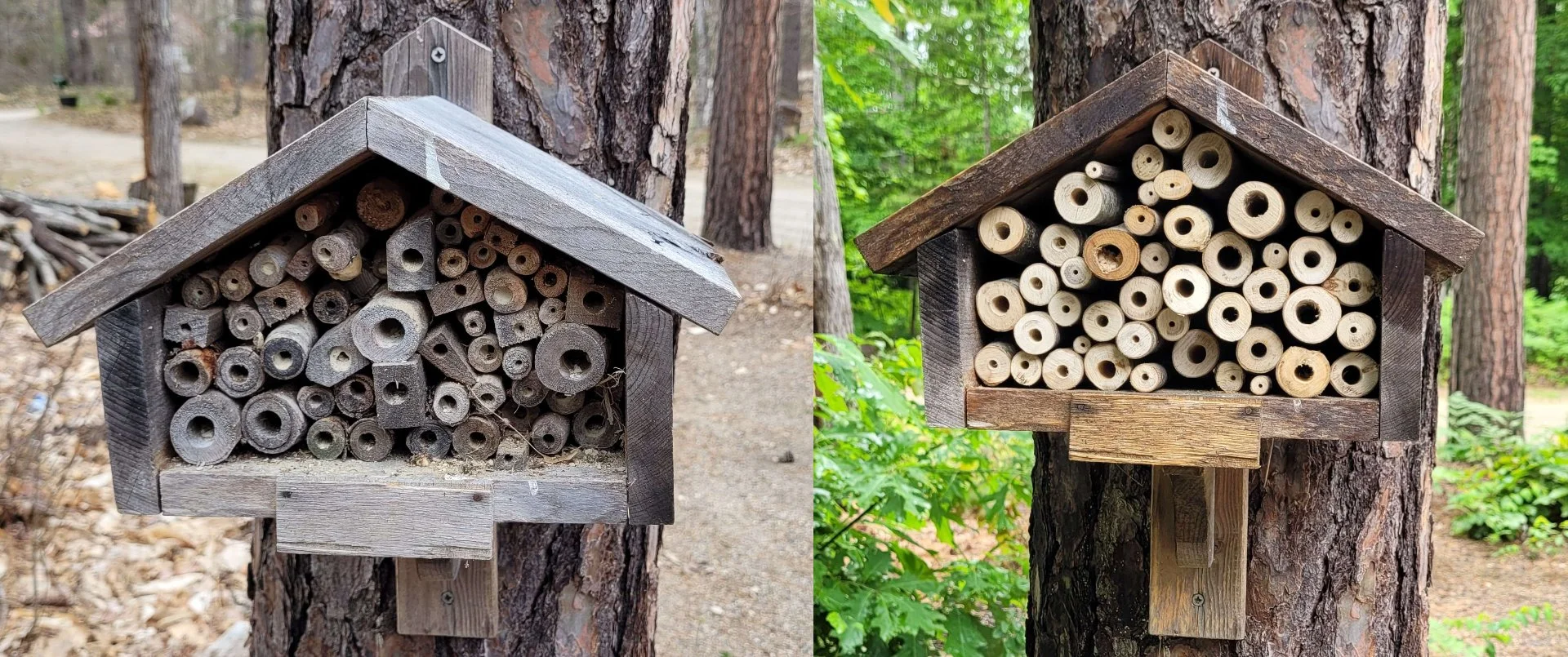
I posted awhile back after making a home for solitary bees, sharing that it had gotten some use. Its important to replace the sticks annually to prevent parasites from being passed from bee to bee as holes are reused.
Thanks to some winter storms, we had lots of downed branches to clear, so I had no shortage of sticks available for use as future bee housing:
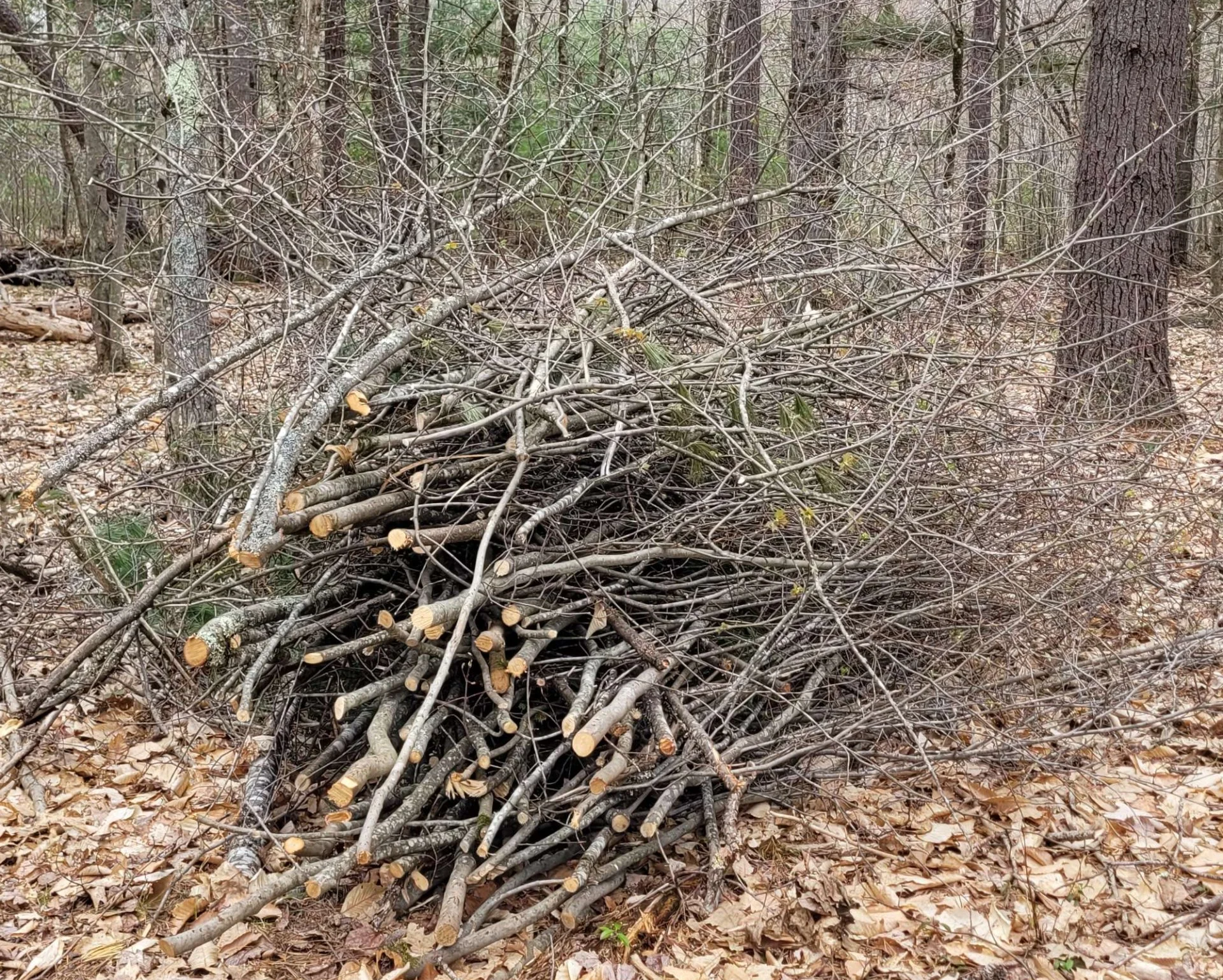 (One pile of many)
(One pile of many)
The holes need to be between 5" and 6" deep, so I started cutting the sticks into 6.5"-ish lengths.
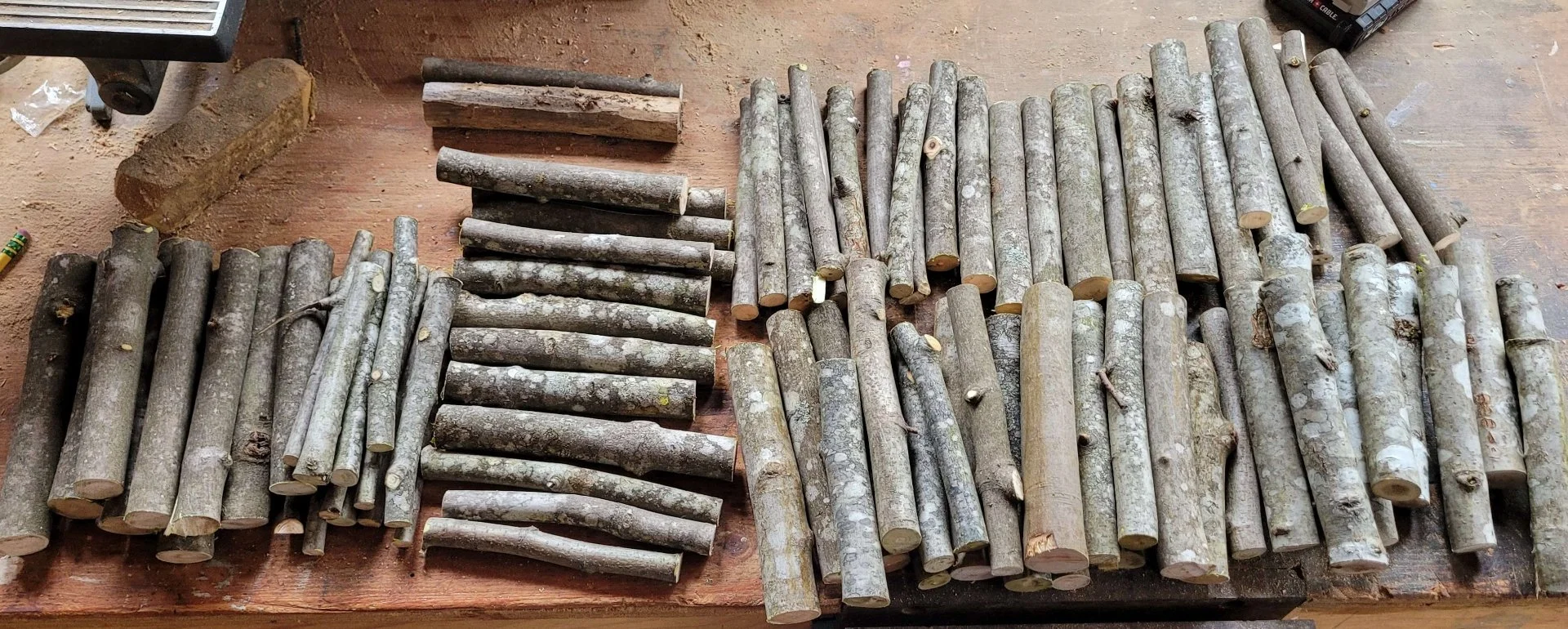
This doesn’t look like much but it took a lot of eight-foot branches to make these piles.
The next step was drilling holes. Different size bees need different diameter holes, so I read a few guides and picked out a range of drill bits between a metric #2 and a full half-inch (I don’t think solitary bees care about unit standardization) to make sure any potential tenants can find a cozy caliber to call home.

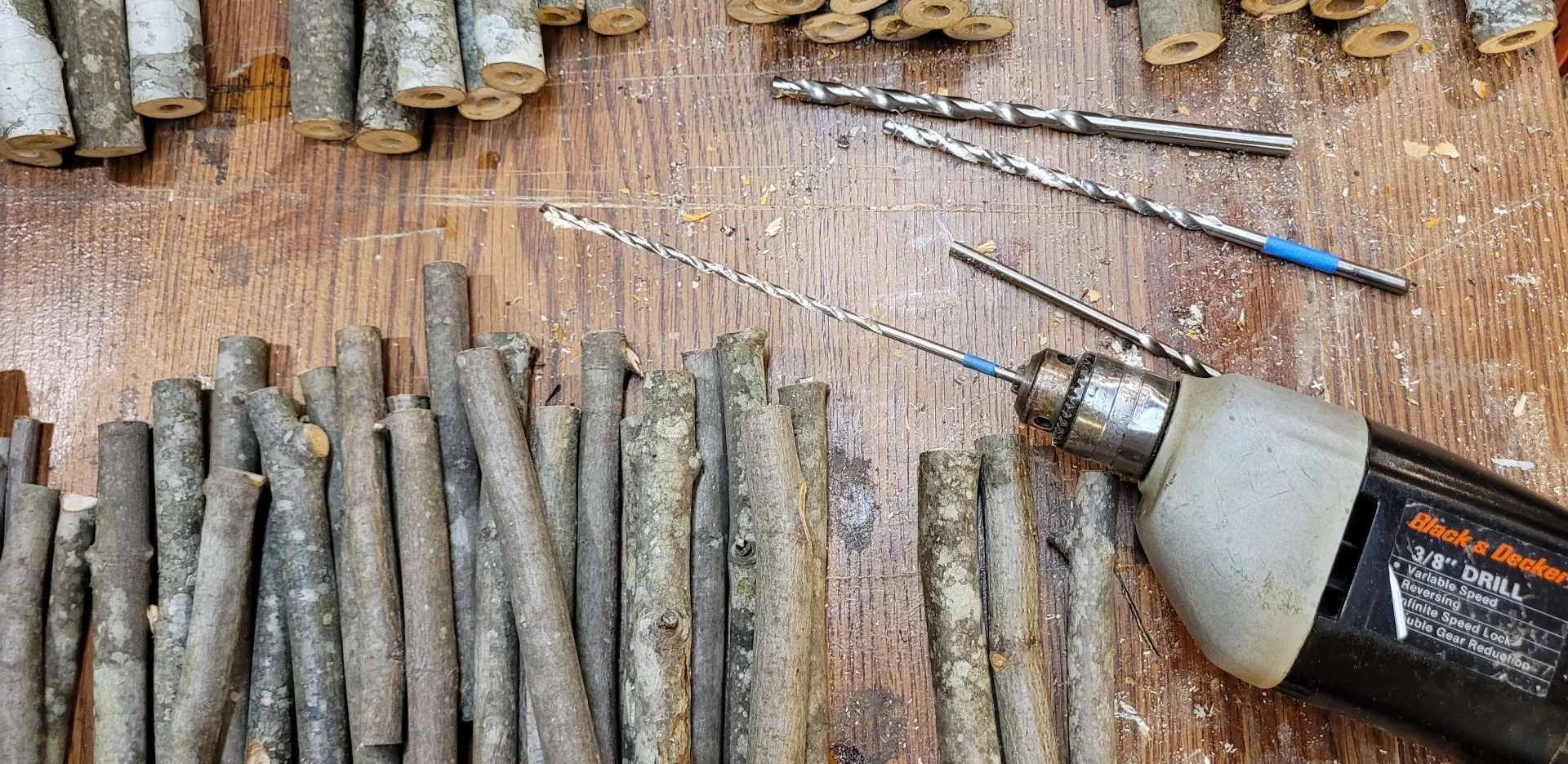
I used the drill press to start the holes then used a set of extra long metric bits in a screwgun to get the full length the bees need
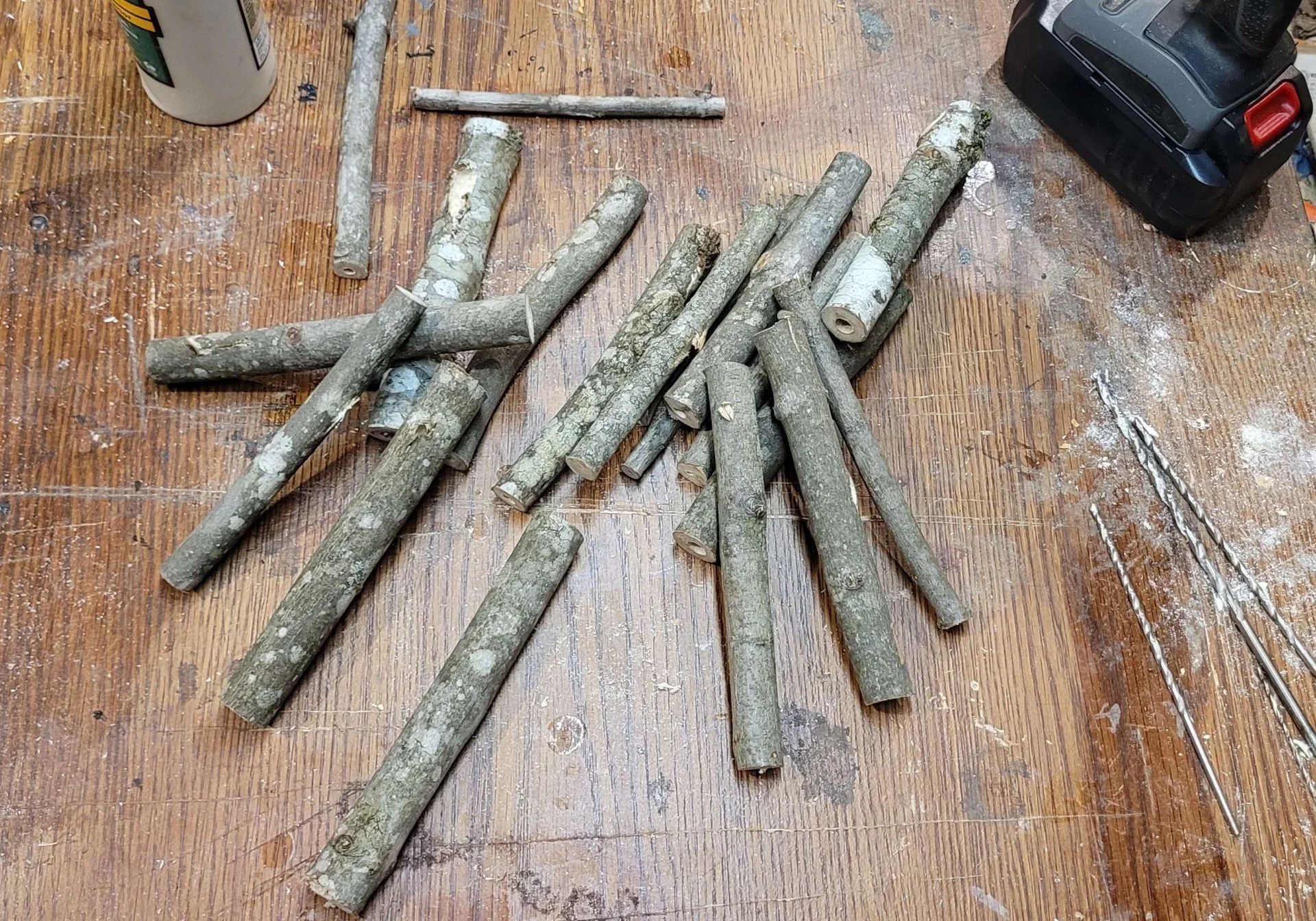
This didn’t always go perfectly. I didn’t break any bits, but sometimes the holes were crooked enough to punch through the side of the stick and I’d set them aside.
Then I just had to bag up what I’d made and replace the sticks in the bee house:
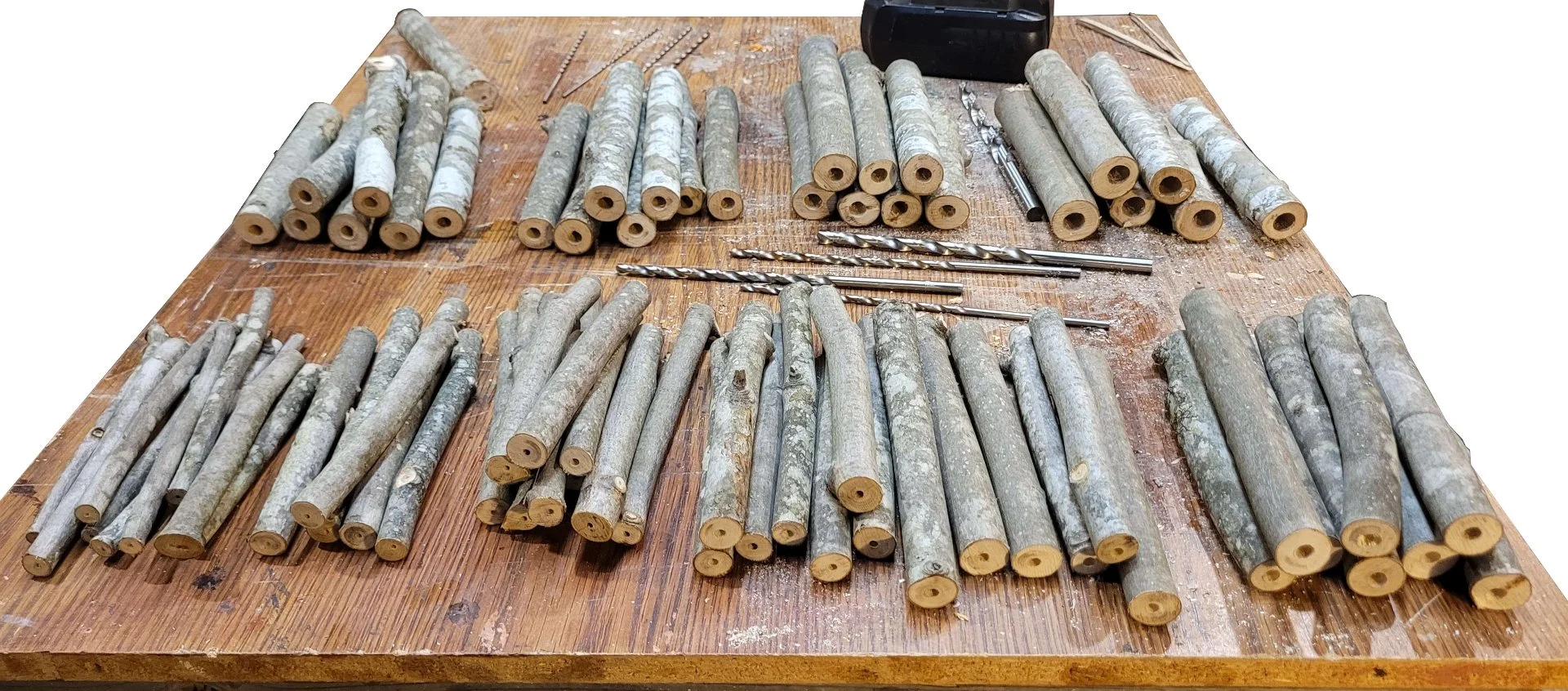
(Background omitted because it’s easier than tidying the shop.)
I’d thought I’d made enough sticks for two years, but it took almost all of them to fill the bee house. Glad I prepared as many as I did.
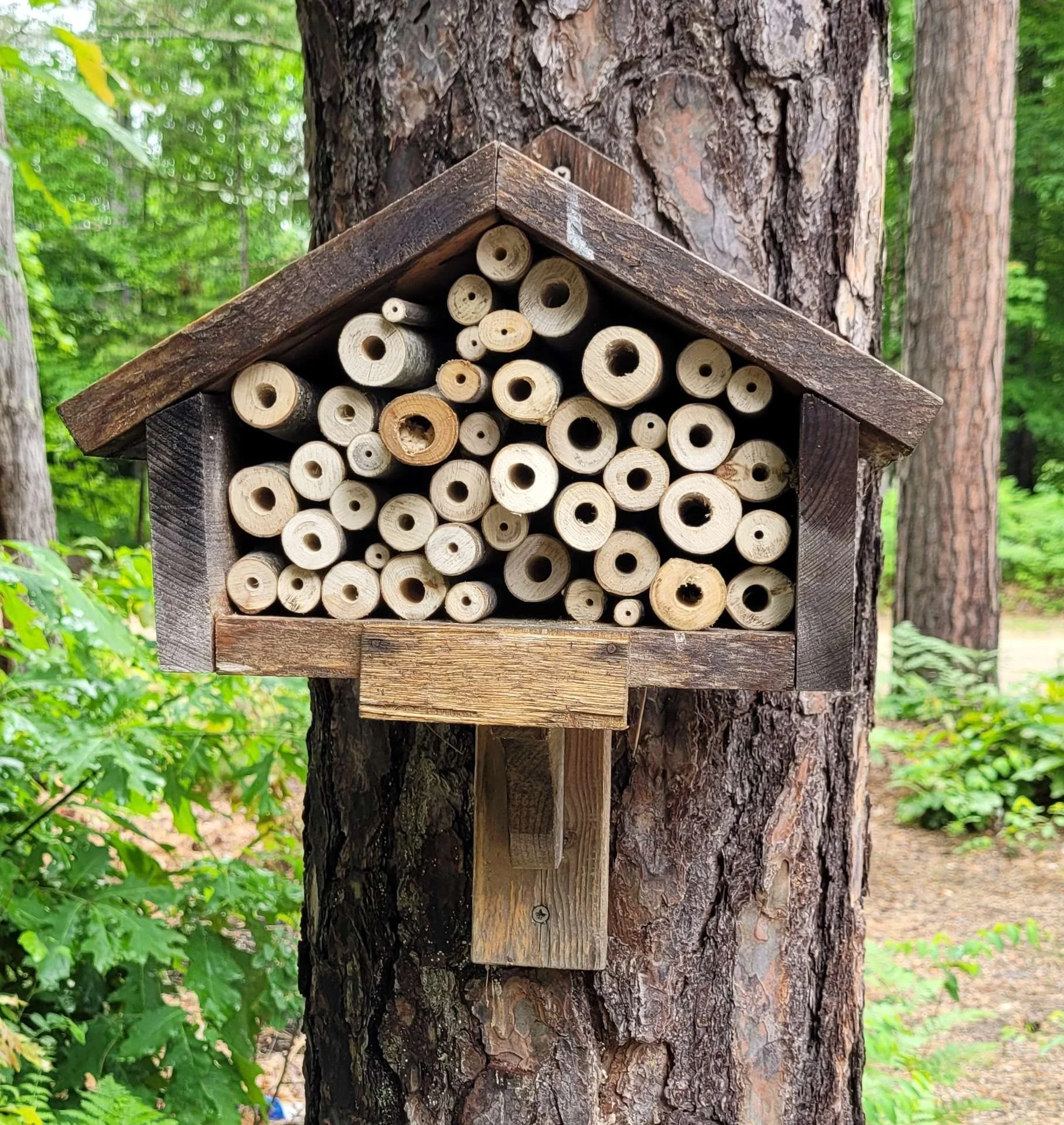
I think I’d call that move-in ready.

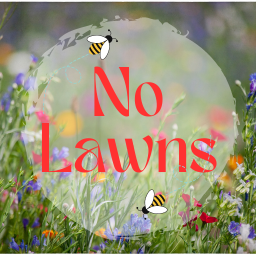
So far, we haven’t noticed any issues with birds or other critters. If we do, I’ll add a screen, but I didn’t want to risk making things easier for spiders, or helping water splash the holes if I didn’t have to.
We did have carpenter ants climb up behind the sticks so I need to figure out our solution to that. I’m really hoping thats new and that they didn’t get into the bee holes or take any eggs. The tree seems healthy so I’m thinking the bee house was what appealed to them?
I’ll update if I learn anything else.